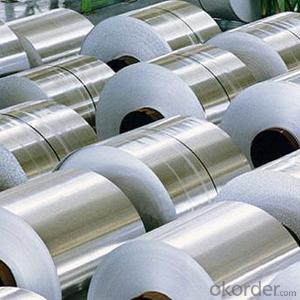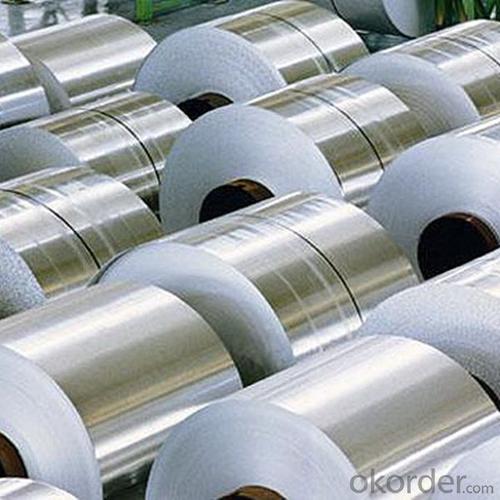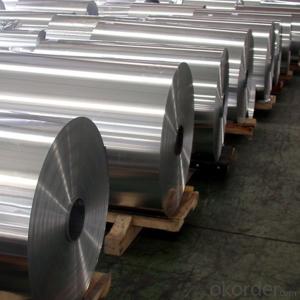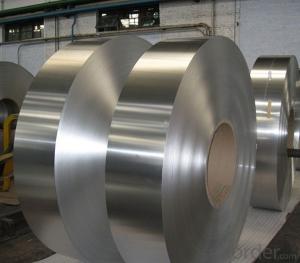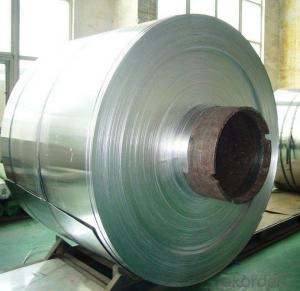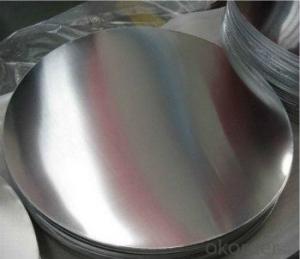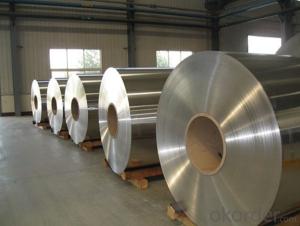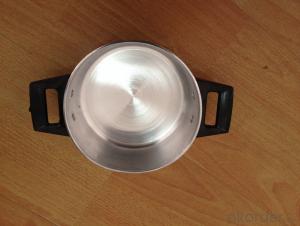2024 Hot Rolled Aluminum Coil AA3003 for Building
- Loading Port:
- Shanghai
- Payment Terms:
- TT OR LC
- Min Order Qty:
- 5 m.t.
- Supply Capability:
- 10000 m.t./month
OKorder Service Pledge
OKorder Financial Service
You Might Also Like
Specification
1. Specification of Hot Rolled Aluminium Coil AA3003 for Building
characteristics | Application |
1) Super peeling strength | 1) Building exterior curtain walls |
2) Excellent surface flatness and smoothness | 2) Decoration and renovation additions for old buildings |
3) Superior weather, corrosion, pollutant resistance | 3) Decoration of interior walls, ceilings, bathrooms, kitchens and balconies |
4) Even coating, various colors | 4) Shop door decorations |
5) Fireproof, excellent heat and sound insulation | 5) Advertisement board display platforms and signboards |
6) Superior impact resistance | 6) Wallboards and ceilings for tunnels |
7) Lightweight and easy to process | 7) Industrial materials, materials for vehicles and boats |
2. Application of Hot Rolled Aluminium Coil AA3003 for Building
(1).Interior: wall cladding, ceilings, bathrooms, kitchens and balconies, shutters, doors...
(2).Exterior: wall cladding, facades, roofing, canopies, tunnels, column covers , renovations...
(3).Advertisement: display platforms, signboards, fascia, shop fronts...
3. Feature of Hot Rolled Aluminium Coil AA3003 for Building
• Our goods quality is top, the surface is smooth, and every steel coil
• No Joint, No Bends, no spots, no roller marks.
• MTC will be provided with goods, third part inspection is acceptable, for example, SGS, BV. Etc
Be free from Oil Stain, Dent, Inclusion, Scratches, Stain, Oxide Dicoloration, Breaks, Corrosion, Roll Marks, Dirt Streaks and other defect which will interfere with use
4. Certificate:
SGS and ROHS(if client request, paid by client), MTC(plant provided), Certificate of Origin(FORM A, FORM E, CO), Bureau Veritas and SGS (if client request, paid by client), CIQS certificate
5. Image of Hot Rolled Aluminium Coil AA3003 for Building
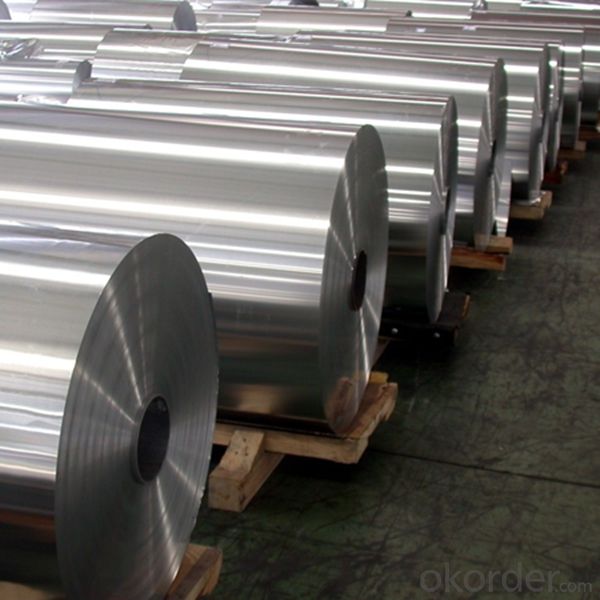
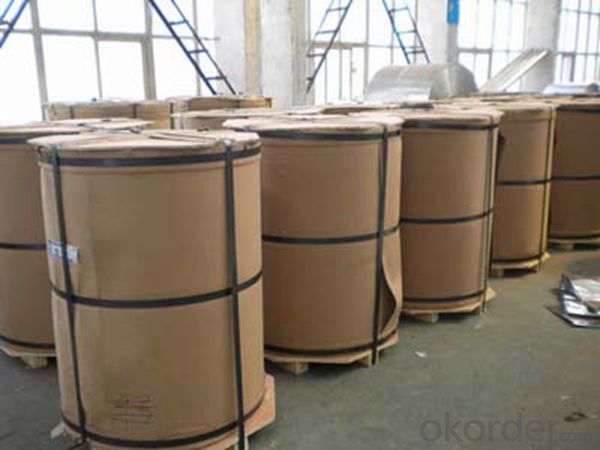
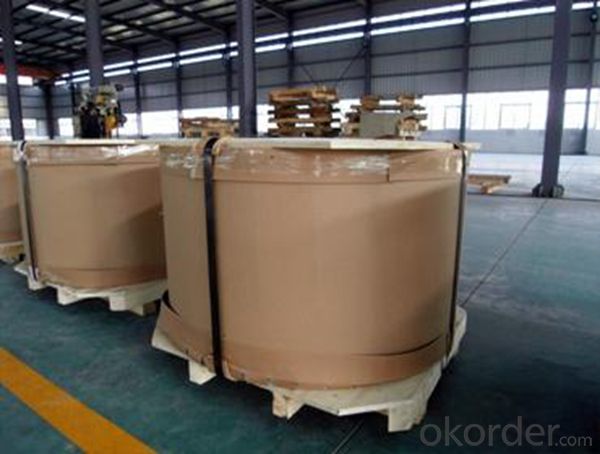
6. Package and shipping of Hot Rolled Aluminium Coil AA3003 for Building
eye to wall
eye to the wall
with wood pallet (wooded case also available)
7. FAQ
1) What is the delivery time?
Dpends on actual order, around 20 to 35 days
2)What is the QC system:
We have QC staff of 20 persons and advanced equipment, each production is with MTC traced from Aluminum ingot lot.
3) What market do you mainly sell to?
Australia, America, Asia, Middle East, Western Europe, Africa etc
- Q: This question asks for a method to compact an aluminum coil by folding it.
- <p>To fold an aluminum coil for compactness, first ensure the coil is free of sharp edges or damage. Use gloves for safety. Start by laying the coil flat. Measure and mark the desired folded length. Begin folding the coil by bringing one end towards the center, aligning the edges neatly. Continue folding back and forth, ensuring each fold is tight and even. Use a rubber mallet or similar tool to secure the folds, if necessary. For larger coils, consider using a mechanical folder or press to apply even pressure. Always work in a well-ventilated area and follow safety guidelines to prevent injury.</p>
- Q: Can aluminum coils be used in electrical conductors?
- Yes, aluminum coils can be used in electrical conductors. Aluminum is a good conductor of electricity and is commonly used in various electrical applications, including wiring, power transmission, and motor windings.
- Q: I was wondering if you could mold clay into a sphere then fill it with aluminum. Then put it over a fire and wait until the aluminum melts then put it in a freezer and it would come out as a sturdy, aluminum sphere. Thanks!
- Do not try this at home! Seriously, this is exactly the kind of process that is used for casting metals. However, you need to have very strong molds with no cracks in them. Also, aluminum presents special problems. Solid aluminum does not corrode the way iron does, because it very quickly forms a protective tough layer of aluminum oxide. But molten aluminum can catch fire, with devastating consequences.
- Q: What are the potential risks of using aluminum coils in specific applications?
- The potential risks of using aluminum coils in specific applications include corrosion, especially in environments with high humidity or acidic conditions. Aluminum coils are also more susceptible to damage and denting compared to other materials. Additionally, aluminum coils may have lower heat transfer capabilities, which could affect the efficiency of certain applications.
- Q: How do aluminum coils compare to steel coils?
- Aluminum coils and steel coils have distinct characteristics that set them apart in terms of strength, weight, corrosion resistance, and cost. In terms of strength, steel coils generally have a higher tensile strength than aluminum coils. This means that steel coils can withstand greater stress and pressure without deforming or breaking. However, aluminum coils still possess sufficient strength for many applications and can be reinforced or designed for specific purposes. Weight is a significant factor when comparing aluminum and steel coils. Aluminum is a lightweight metal, approximately one-third the weight of steel. This lightweight property makes aluminum coils more advantageous in applications where weight reduction is critical, such as in transportation industries or aerospace. When it comes to corrosion resistance, aluminum coils outperform steel coils. Aluminum naturally forms a protective oxide layer that prevents further corrosion. On the other hand, steel is susceptible to rust and requires additional coating or treatment to enhance its corrosion resistance. This makes aluminum coils a preferred choice in coastal or humid environments where corrosion can be a major concern. Cost is another key consideration. Aluminum coils often have a higher initial cost than steel coils due to the higher cost of raw materials and manufacturing processes. However, the overall cost may vary depending on factors like transportation, maintenance, and lifespan. Aluminum coils tend to have lower maintenance costs and longer lifespans due to their corrosion resistance, which can offset the initial investment in the long run. In summary, aluminum coils offer several advantages over steel coils, including lower weight, superior corrosion resistance, and potential long-term cost savings. However, steel coils still boast higher tensile strength and may be the preferred choice in applications that require maximum strength or have a lower budget. Ultimately, the choice between aluminum and steel coils depends on the specific requirements and considerations of the intended application.
- Q: For the reaction at the anode:Al ----gt; Al3+ + 3eHowever, at the anode, oxygen are also produced and forms aluminium oxide(Al2O3) with aluminium.Are Oxygen produced by oxidation of water by electrolysis? or some reaction else?If Oxygen are produced by oxidation of water, then why it can be oxidise sinceAl ----gt; Al3+ + 3e E^0= + 1.66V2H2O ---gt; O2 + 4H+ + 4e E^0= - 1.23V(if refers to E null value) Oxygen should only be produced after all the Al have been finish oxidised.Both reaction happen at the same time? Is it possible?
- with respect to your massege, i must say that it depends of what electrode you choice for your work. but with refer to E i think oxidation of watter do not interference with oxidation of Al and only oxidation of Al happen .
- Q: This question asks about the applications of aluminum coil in the field of architecture.
- <p>Aluminum coil is widely used in architecture for various purposes. It is utilized in the manufacturing of aluminum composite panels, which are lightweight, durable, and have excellent weather resistance, making them ideal for facades and exterior cladding. Aluminum coil is also used in the production of roofing materials and rainwater systems due to its corrosion resistance and strength. In addition, it is employed in the creation of window frames and doors for its thermal insulation properties and aesthetic appeal. Furthermore, aluminum coil is used in the construction of structural components such as beams and columns, taking advantage of its high strength-to-weight ratio and recyclability. Its versatility and sustainability make aluminum coil a popular choice in modern architectural design.</p>
- Q: How are aluminum coils manufactured?
- Aluminum coils are manufactured through a process known as aluminum coil rolling. This process involves several steps that transform aluminum ingots into coils of various sizes and thicknesses. The first step in manufacturing aluminum coils is aluminum smelting, where raw aluminum ore is extracted and refined into aluminum ingots. These ingots are then heated in a furnace to a specific temperature, where they become malleable and ready for the rolling process. The second step is hot rolling, where the heated aluminum ingots are passed through a series of rolling mills. These mills apply pressure to the ingots, gradually reducing their thickness and increasing their length. The aluminum ingots are rolled back and forth between multiple rollers to achieve the desired thickness and shape. This process also helps to improve the mechanical properties and surface finish of the aluminum. After hot rolling, the aluminum coils undergo a process called cold rolling. In this step, the coils are further reduced in thickness using a series of cold rolling mills. Cold rolling improves the dimensional accuracy, surface finish, and mechanical properties of the aluminum. It also helps to enhance the strength and hardness of the material. Once the desired thickness is achieved, the aluminum coils may undergo additional processes such as annealing or tempering. Annealing involves heating the coils and then slowly cooling them to relieve internal stresses and improve their ductility. Tempering, on the other hand, involves reheating the coils to a specific temperature and then rapidly cooling them to enhance their strength and hardness. After these processes, the aluminum coils are usually inspected for quality control purposes. They are checked for any defects, such as surface imperfections or thickness variations, and any necessary corrections are made. Finally, the aluminum coils are typically cut into smaller sizes and packaged for distribution to various industries that use them for different applications, such as in the manufacturing of automobiles, appliances, construction materials, and packaging. In conclusion, the manufacturing of aluminum coils involves processes such as smelting, hot rolling, cold rolling, annealing, tempering, and quality control checks. These steps ensure that the aluminum coils meet the required specifications in terms of thickness, strength, and surface finish.
- Q: The user is asking if it's possible to purchase recycled aluminum coil through online platforms.
- <p>Yes, you can buy recycled aluminum coil online. Many online marketplaces and specialized metal supply websites offer a variety of aluminum coils, including recycled ones. You can search for suppliers on platforms like Alibaba, Amazon, or industry-specific B2B websites. Be sure to check the supplier's reputation, the quality of the recycled aluminum, and the specifications to ensure it meets your requirements.</p>
- Q: This question asks about potential health hazards linked to the use of aluminum coils in culinary settings.
- <p>There are some concerns about using aluminum cookware due to the potential for aluminum to leach into food, especially at high temperatures or in acidic environments. While the human body needs small amounts of aluminum, excessive intake can be harmful. It has been linked to neurological disorders, although the evidence is not conclusive. Most health organizations, including the FDA, consider aluminum cookware safe for general use. However, for those who are concerned, alternatives like stainless steel, cast iron, or non-stick coatings are available. It's always best to follow manufacturer's guidelines and avoid using aluminum cookware for acidic or highly acidic foods to minimize any potential risk.</p>
Send your message to us
2024 Hot Rolled Aluminum Coil AA3003 for Building
- Loading Port:
- Shanghai
- Payment Terms:
- TT OR LC
- Min Order Qty:
- 5 m.t.
- Supply Capability:
- 10000 m.t./month
OKorder Service Pledge
OKorder Financial Service
Similar products
Hot products
Hot Searches
Related keywords
